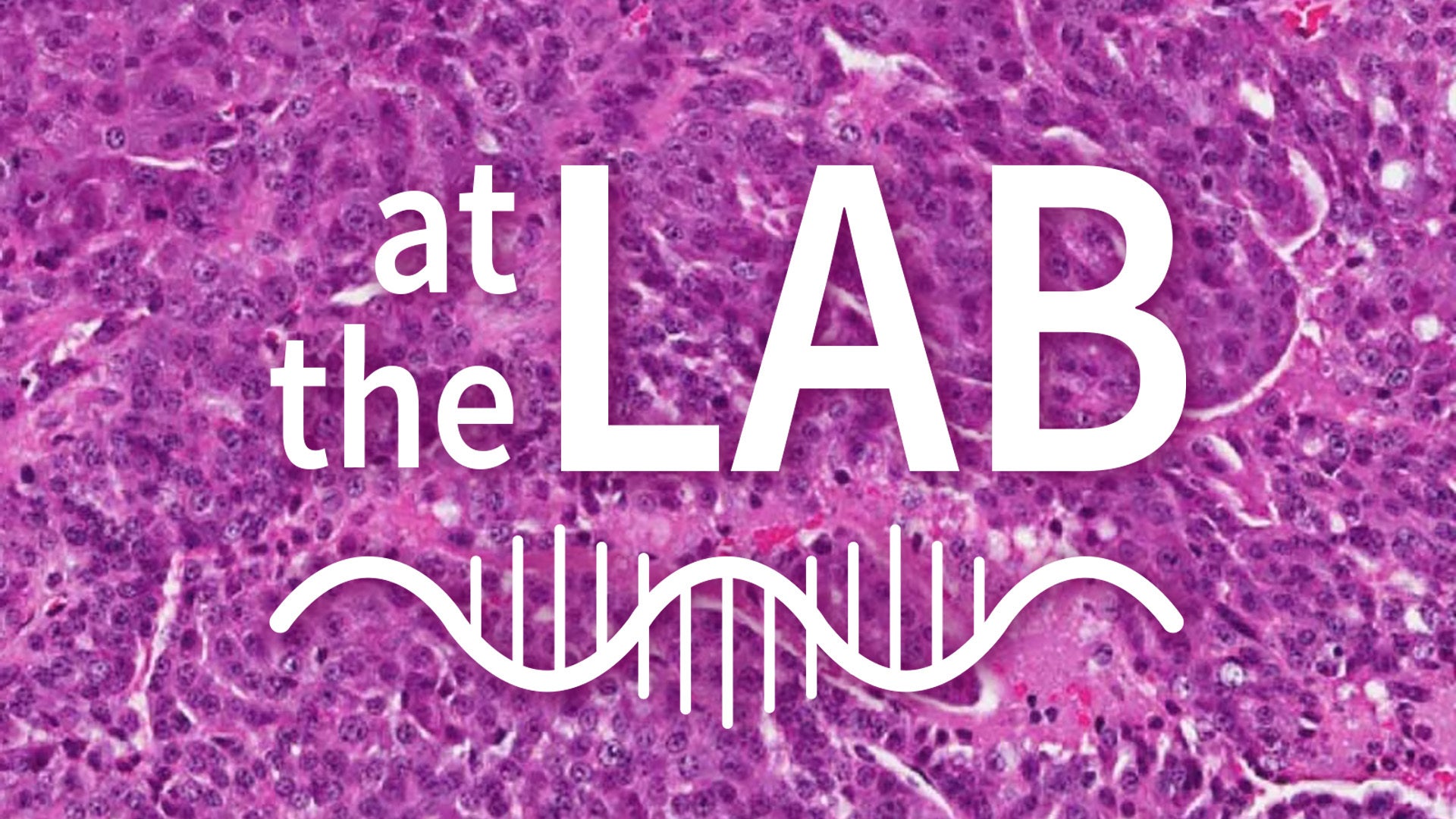Today, the five-year survival rate for early-stage breast cancer is about 99%. Awareness drives detection. But what about those breast cancers that aren’t caught early? What about those that evade common therapies? For Breast Cancer Awareness Month, we sat down with CSHL Professor David Spector to discuss some of his lab’s latest research and the partnership making it possible.
Read the related story: A new “link” to triple-negative breast cancer
Transcript
Bridget Shanley: You’re now At the Lab with Cold Spring Harbor Laboratory. My name is Bridget Shanley and this week At the Lab, we’re celebrating Breast Cancer Awareness Month.
BS: Each October, we’re reminded about the importance of breast cancer screening for early detection. Today, we’re thankful for how far breast cancer diagnostics and therapeutics have come. We’re also keenly aware that most, if not all, of these advancements are rooted in fundamental biology research. So, for this episode, we wanted to highlight some new research and ongoing partnerships that build on Cold Spring Harbor’s legacy of discovery and innovation. To do that, we sat down with CSHL Professor and Cancer Center member David Spector.
BS: As a molecular biologist, Spector investigates the so-called “dark” parts of the genome, like long non-coding or lncRNAs. Unlike mRNAs, which you may have heard of, lncRNAs do not encode for proteins. However, as we’re learning, they do perform other important functions. By shining a light on these molecules, Spector hopes to find new clues about those forms of breast cancer that are most difficult to detect and hardest to treat.
David Spector: Triple-negative breast cancer is among the most aggressive forms of breast cancer, and there are no really effective targeted therapies for triple-negative breast cancer at the moment. So, these individuals are treated with chemotherapy, which is a very aggressive and rather primitive form of therapy. And our long-term goal is to try to find a lncRNA or multiple lncRNAs that may eventually be therapeutic targets.
DS: A previous study in our lab was on a lncRNA called MALAT1 that is upregulated in triple-negative breast cancer. We developed a drug against MALAT1 in collaboration with Ionis Pharmaceuticals, and we’re hoping that will end up in a clinical trial within the next few years. So, that’s the long-term picture. And LINC01235 is a more recent lncRNA that we focused on, and came upon some interesting interactions that it has in cells.
BS: What cells were they looking at? The answer to that question lies with another ongoing strategic initiative—this one with Northwell Health.
DS: We’ve had a number of grants from the Cold Spring Harbor-Northwell alliance. And we’ve been developing these organoid models in various subtypes of breast cancer.
BS: Organoids, as in lab-grown, three-dimensional human tissue models?
DS: Yes, yes, and the goal is to develop models that better reflect the actual state of the patient’s tumor, rather than just 2D cell lines that have been used for years and years. And so over the last five or six years, we’ve developed a large number of triple-negative breast cancer organoid models through this mechanism. We’ve also focused on another subtype of breast cancer, which is not part of this study, called invasive lobular carcinoma, or ILC, and we’re developing organoid models against that subtype. So, the collaboration with Northwell has been instrumental in all of our work in the lab.
BS: In turn, Spector’s work has been instrumental in advancing our understanding of these deadly diseases, moving science and medicine toward new therapeutic possibilities for treating them. And here at Cold Spring Harbor, that’s what Breast Cancer Awareness Month is all about.
BS: Thanks again for supporting science by listening and learning right alongside us. If you noticed this episode was a little longer than usual, that’s not an accident. We’re experimenting with a different format, so don’t be surprised if you see or hear some other changes. As always, you can find out more by visiting us online at cshl.edu. And you can philanthropically support this research by making a tax-deductible donation at give.cshl.edu. For Cold Spring Harbor Laboratory, I’m Bridget Shanley. Thanks again for joining us At the Lab.
